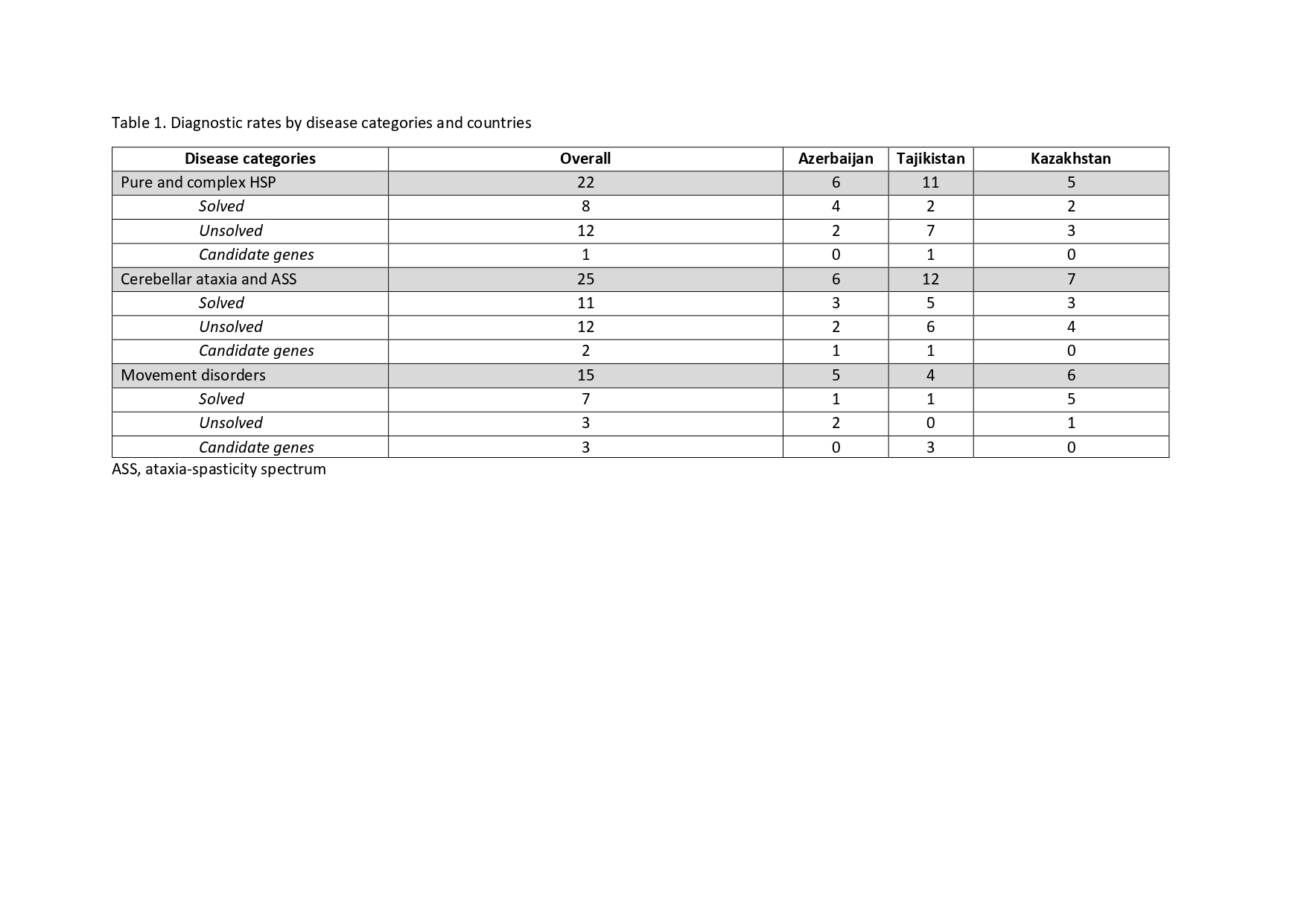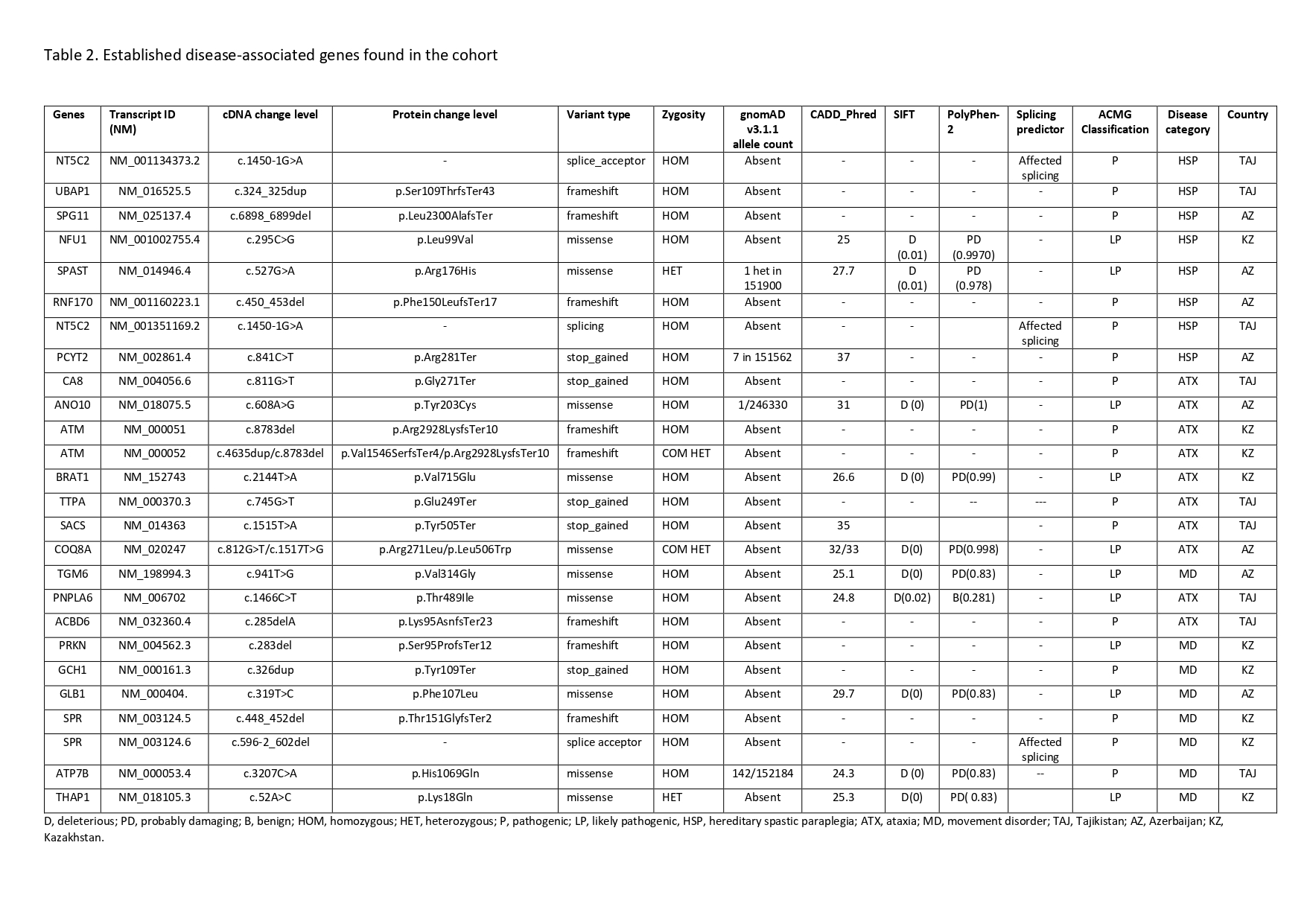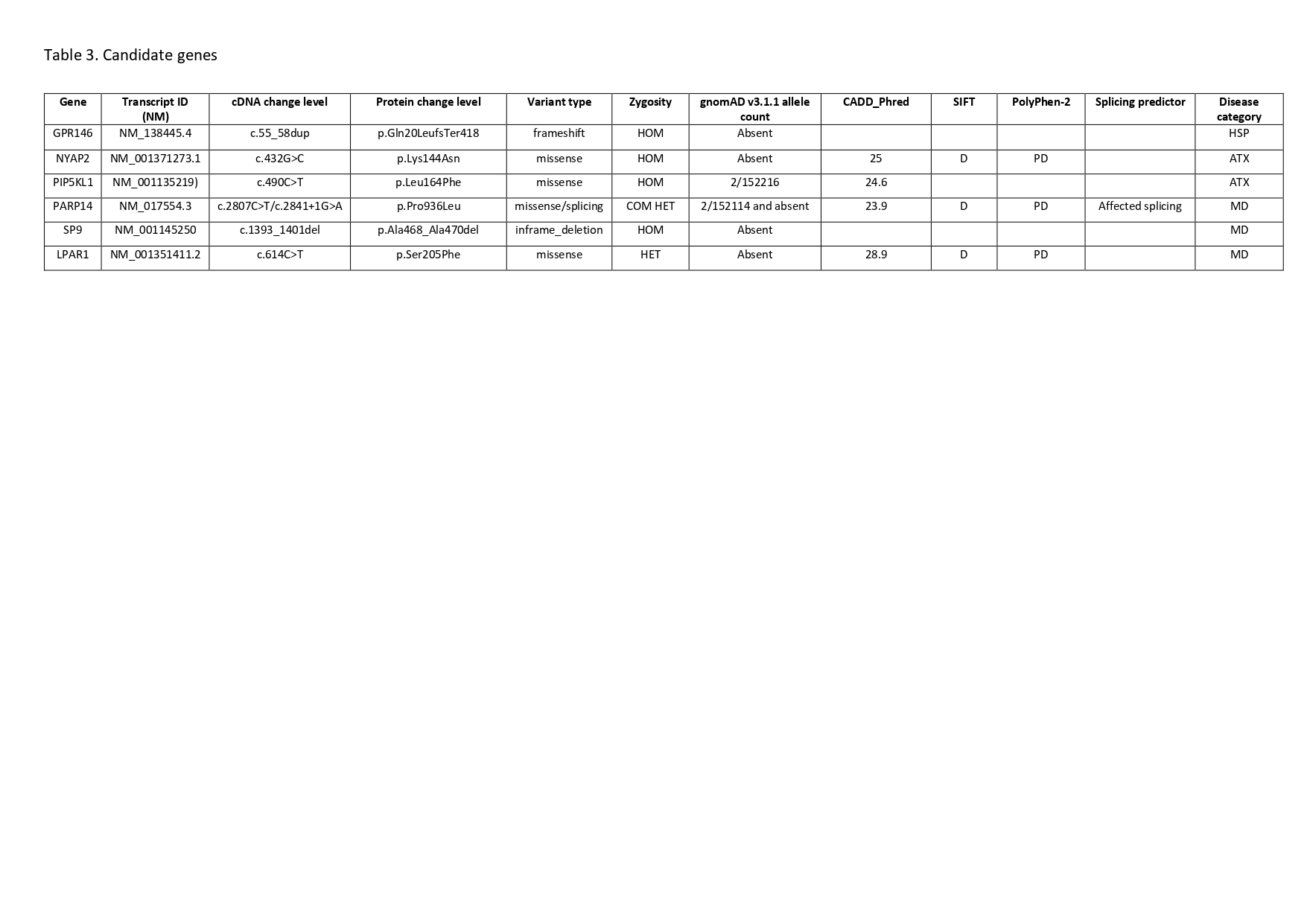Category: Genetics (Non-PD)
Objective: To report the results of whole-exome sequencing (WES) in 62 families with early-onset movement disorders, cerebellar ataxia, and hereditary spastic paraplegia (HSP) from Kazakhstan, Tajikistan, and Azerbaijan.
Background: Little is known about the genetic profile of Central Asian and Transcaucasian populations (CAT) and their families with genetic diseases, including early-onset movement disorders, cerebellar ataxia, and HSP, lagging them behind that of Europe and East Asia. The high rates of consanguineous marriages in Azerbaijan and Tajikistan enrich this area with undiagnosed autosomal recessive disorders leaving the patients and families with inadequate diagnosis and treatment.
Method: In 2018 the “University College London (UCL)-Central Asia-Transcaucasia disease diversity project” was initiated, and hitherto, around 2000 families with rare early-onset paediatric neurological disorders from Central Asia and Transcaucasia have been recruited. Proband/trio WES, variant filtering, dynamic re-analysis of WES data, and variant confirmation/segregation analysis by Sanger sequencing were performed at UCL as previously described (1).
Results: More than half of the cohort (58%) were probands from consanguineous unions originating from Azerbaijan and Tajikistan. Families with multiple affected members made up 39% of the cohort. The median age of the probands at the time of recruitment was 14 years. Clinical phenotypes were divided into 3 disease categories: pure and complex HSP (22 cases), hereditary cerebellar ataxia and ataxia-spasticity spectrum disorders (25 cases), and movement disorders (15 cases)(Table 1). Overall, 26 families (42%) received a molecular diagnosis with causative variants identified in known disease-associated genes (Table 2). Putative candidate genes were identified in 9.6% (6/62) of the families (Table 3). Several actionable genes improved clinical management.
Conclusion: This is the first WES study on families with movement disorders, cerebellar ataxia, and HSP from Central Asia and Transcaucasia. The study showed a good WES diagnostic rate. Further large-scale genetic studies are warranted in this world region.
References: 1. Makrythanasis P, Maroofian R, Stray-Pedersen A, Musaev D, Zaki MS, Mahmoud GI. Biallelic Variants in KIF14 Cause Intellectual Disability With Microcephaly. Eur J Hum Genet 2018; 26 (3): 330-339.
To cite this abstract in AMA style:
R. Kaiyrzhanov, M. Ganieva, K. Salayev, U. Guliyeva, S. Gulieva, C. Shashkin, M. Isoqova, N. Asilova, S. Ibrohimov, A. Zeynalova, S. Badalova, I. Hajiyeva, R. Ibadova, N. Zharkinbekova, H. Houlden. Whole exome sequencing in 62 families with early-onset movement disorders, cerebellar ataxia and hereditary spastic paraplegia from Kazakhstan, Tajikistan, and Azerbaijan [abstract]. Mov Disord. 2022; 37 (suppl 2). https://www.mdsabstracts.org/abstract/whole-exome-sequencing-in-62-families-with-early-onset-movement-disorders-cerebellar-ataxia-and-hereditary-spastic-paraplegia-from-kazakhstan-tajikistan-and-azerbaijan/. Accessed January 28, 2026.« Back to 2022 International Congress
MDS Abstracts - https://www.mdsabstracts.org/abstract/whole-exome-sequencing-in-62-families-with-early-onset-movement-disorders-cerebellar-ataxia-and-hereditary-spastic-paraplegia-from-kazakhstan-tajikistan-and-azerbaijan/



